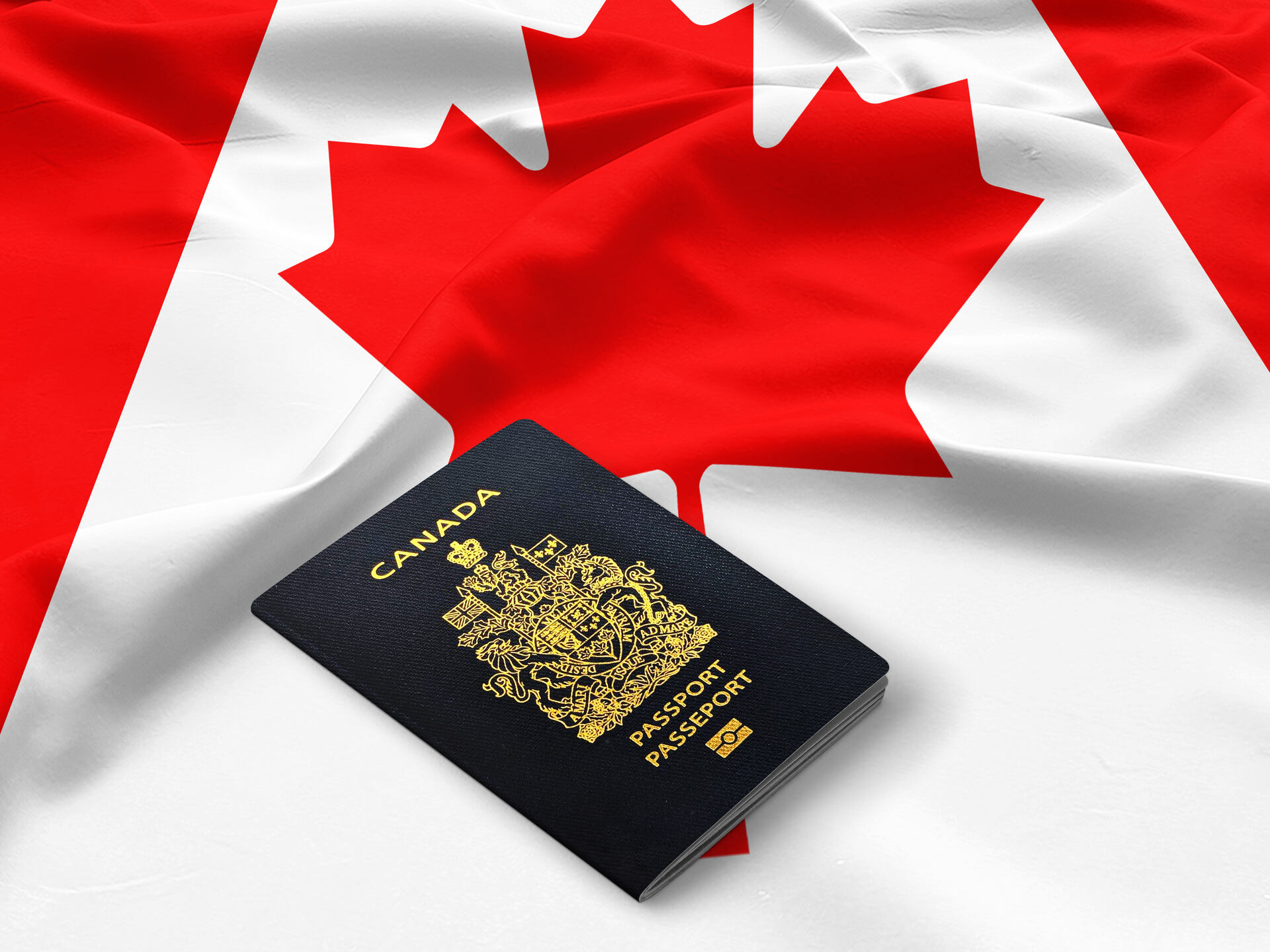

Before making the decision to move to the Great White North, it’s essential to understand the cost of living in Canada. It can vary significantly depending on the city or province, and there are several factors to consider, such as housing, transportation, food, and healthcare. In this blog post, we will explore Canada’s cost of living in detail, providing an overview of the expenses you can expect to encounter.
Why Is It Important to Know What Is the Cost of Living in Canada?
Knowing how much is the cost of living in Canada is essential for anyone planning to live, work, or study in the country. It helps individuals understand the expenses they are likely to incur and make informed decisions about their financial plans.
For starters understanding the expenses is crucial for setting a budget. It helps individuals plan their expenses and manage their finances more effectively. By knowing individuals can avoid overspending, prioritize their expenses, and save for their future.
Also, the cost of living can also play a significant role in career planning. Salaries can vary greatly depending on the city or province, and understanding the cost of living can help individuals negotiate a fair salary or decide which location would be best for their career goals.
Housing is typically the most significant expense. Knowing the prices in different big cities or provinces can help individuals decide where to live based on their budget and lifestyle. Knowing how much money you’ll need will help you plan finances, make informed decisions about your career and education, and ensure a comfortable standard of living.
Housing Costs Will Depend on the Location You Settle In
Housing costs can vary significantly depending on the location, size, and type of accommodation. Generally speaking, Canada has a relatively high cost of housing compared to some other countries, especially in larger cities such as Toronto, Vancouver, and Montreal.
Toronto, Vancouver, and Montreal – Which One Has the Most Expensive Housing Prices
Those that plan to move to Vancouver should know that among these three cities, it has the most expensive house prices. If you are planning on living here know that high housing prices are driven by factors such as limited land availability, high demand for housing, and a strong economy.
If you are moving internationally to the biggest city in CA know that its housing prices are also not low. Relocating to Toronto will put you in a location with some of the most expensive properties in the nation. On the other hand, moving abroad to Montreal will mean you get to live in a place with relatively lower housing prices.
Remember that housing prices in all three cities can vary significantly depending on factors such as the neighborhood, size, age, and condition of the property. It’s essential to research the specific location and type of accommodation you’re considering before making any decisions. To help you speed up the process, we used data from the website Numbeo and compared the housing expenses in all three cities.
| City | Rent Apartment (1 bedroom) | Rent Apartment (3 bedrooms) | Buy Apartment Prices (City Center) | Buy Apartment Prices (Outside of City Center) |
|---|---|---|---|---|
| Vancouver | $1,550 | $2,450 | $950 | $725 |
| Toronto | $1,510 | $2,350 | $880 | $690 |
| Montreal | $810 | $1,350 | $580 | $330 |
What Are the Most Affordable Housing Cities in Canada?
Those moving overseas to another country will probably want to save up. That’s why choosing the more affordable places to settle in is the most efficient solution. Here are some Canadian cities with the most affordable housing prices:
- Winnipeg – Located in the province of Manitoba, the town is known for its low cost of living and affordable housing prices. The average home price in Winnipeg was around $259,750.
- Halifax – the capital city of Nova Scotia, is another affordable Canadian city with a strong economy and a growing population. The average home price in Halifax is around $363,700.
- Regina – the capital city of Saskatchewan and has a relatively low cost of living and affordable housing prices. The average home price in Regina is around $210,820.
It’s important to note that these housing prices can vary depending on factors such as the location, size, age, and condition of the property. It’s essential to research the specific city and type of accommodation you’re considering before making any decisions.
Be Prepared – Canadians Love to Eat Out and Get Takeout
As in any other country food and grocery costs in Canada can vary depending on the location, season, and availability of certain items. Overall, CA has a relatively high cost of food and groceries compared to some other countries. On top of that, Canadians love their takeout and dining out, so as a newcomer, you might want to embrace that lifestyle.
But before we get to how much money you need to dine out in CA, let’s go over the cost of groceries. They can vary depending on the location and season. According to Canada’s Food Price Report, a family of four spends $12,090 per year on food. That amount can be higher in larger cities such as Toronto and Vancouver, where the prices for some items are typically higher. However, smaller cities and rural areas can have lower prices for groceries.
Now let’s talk dining out. In general, a meal at a mid-range restaurant can cost around $35 per person, while a fast-food meal can be around $10-$15 per person. The prices of fruits and vegetables can be affected by the season. For example, during the summer months, the prices of locally grown produce tend to be lower than during the winter months when most produce is imported.
Check out the table below to see some food prices.
| Product | Price |
|---|---|
| Milk (gallon) | $7.60 |
| White Rice (1lb) | $1.50 |
| Eggs (12) | $3.05 |
| Chicken Fillets (1 lb) | $4.90 |
| Banana (1 lb) | $0.65 |
How Can You Save Money on Food and Groceries?
Moving internationally is not a cheap adventure, so it is only logical that you want to save up where you can. Here are some tips for saving money on food and groceries when relocating:
- Make a meal plan – Planning your meals in advance can help you save money by avoiding last-minute purchases and reducing food waste. Make a list of the ingredients you need for each meal and stick to it while shopping.
- Buy in bulk – Buying items in bulk can help you save money in the long run, especially for non-perishable items like rice, pasta, and canned goods. Look for bulk stores or wholesale clubs like Costco.
- Shop for sales – Keep an eye out for sales and discounts at your local grocery store. Consider stocking up on items that are on sale, but only if you know you will use them before they expire.
- Cook at home – Cooking at home can be much cheaper than eating out, and it also allows you to control the ingredients and portion sizes. Try meal prepping for the week to save time and money.
By implementing these tips, you can save money on food and groceries while still enjoying healthy and delicious meals.

There Are Many Different Transportation Options You Can Embrace
Are you shipping a car to CA? Or are you planning on embracing the public transportation options the country offers? Before you decide to ditch your car or bring it with you, let’s see what are the transportation options in CA, and how much money will they knock out of your pocket.
Public transportation is the first option you should consider. Most major cities have public transportation systems, such as buses, subways, and streetcars. Many cities also have light rail and commuter trains. Public transportation is usually operated by local transit authorities and fares vary depending on the location and type of transit. The average cost of a monthly pass is $75.
The next option is driving – if you decide to use auto shipping services and bring your four-wheeler with you. Cars are a popular mode of transportation. However, car ownership can be expensive due to the cost of purchasing and maintaining a vehicle, as well as the cost of gas and insurance.
For example, you’ll be expected to pay per year in maintenance fees on average $1,500. Also, you should calculate in the price of gas, which is currently $5.10 per gallon.
Next, some of the most affordable options – biking and walking. Biking is becoming increasingly popular, with many cities having dedicated bike lanes and trails. Bike-share programs are also available in some cities. Walking is also a popular mode of transportation in many urban areas, with many cities designed for pedestrian traffic.
Another way of traveling is by air. Canada is a large country, and air travel is often the most practical way to travel between cities that are far apart. CA has several major airports, including Toronto Pearson International Airport, Vancouver International Airport, and Montreal-Pierre Elliott Trudeau International Airport.
In conclusion, transportation is diverse, with many options for getting around. However, the best mode of transportation depends on your location, budget, and travel needs.

Healthcare Is an Expense You Shouldn’t Skip
In Canada, healthcare is publicly funded and provided to all citizens and permanent residents. This means that basic healthcare services are free of charge, including visits to the doctor and hospital stays. However, there are some healthcare costs that Canadians may be responsible for, such as prescription medications, dental care, and vision care.
Prescription drugs are not covered under the universal healthcare system, except for some specific medications administered in hospitals. As a result, Canadians spend $450 a pear on prescription meds. Also, basic dental care is not covered, so you should have dental insurance through an employer (this is one of the main questions to ask an employer when moving). If you are not covered by the company, you can pay for dental services out of your pocket. Yearly, on average Canadians spend $380 on dental services.
It is important to note that healthcare costs and coverage can vary by province and territory. Overall, if this type of healthcare system is confusing you, check out the video below, it might clear some things up.
There Are Education Options for Every Pocket
One of the many reasons that expats choose to move to Canada is the excellent education system. It really is one of the best countries to live in with a family. From primary school to university, CA has a lot to offer when it comes to education.
Primary education typically starts at the age of five or six and continues until the age of 12 or 13. Secondary education starts at the age of 13 or 14 and continues until the age of 17 or 18. The primary and secondary education system is publicly funded and is available to all residents, including expats.
For expats who are interested in pursuing post-secondary education, Canada has a lot to offer. There are over 100 universities and colleges, offering a wide range of programs and degrees. Some of the most popular fields of study for international students include engineering, business, and computer science.
What Are the Most Affordable Universities in Canada?
The country is known for its excellent universities and colleges, but the cost of tuition can be a concern for many students. Fortunately, there are a number of affordable options available for those looking to pursue higher education. Here are some of the most affordable universities in Canada:
- Memorial University of Newfoundland – The university offers a range of undergraduate and graduate programs in areas such as business, engineering, and social sciences. And yearly tuition for international students is around $8,500.
- Brandon University – The university offers undergraduate and graduate programs in areas such as education, music, and nursing. Here yearly tuition is around $3,000.
- The University of Manitoba – Offers a range of undergraduate and graduate programs in areas such as science, arts, and engineering, and international students, and yearly tuition for international students is $10,900.
- University of Prince Edward Island – The university offers undergraduate and graduate programs in areas such as business, education, and science. Here yearly tuition is approximately $5,100.
- The University of Saskatchewan – The university offers undergraduate and graduate programs in areas such as engineering, agriculture, and health sciences. Tuition for international students here is around $13,000.
The amount of different education options make CA one of the best countries to live in for all knowledge seekers. But it is important to note that tuition rates can vary depending on the program and degree level. Additionally, other costs such as housing, textbooks, and living expenses should also be taken into consideration when budgeting for university.

Cost of Living in Canada vs. USA – Which One Is More Affordable?
Are you considering relocating from the US to Canada? If so, comparing these two countries is a must long before you start the relocation process. To make your decision easier, we compared some average costs in both countries. Check out the table below for the results.
| Country | Utilities | Internet | Renting 1br apartment | Price per Square Feet to Buy |
|---|---|---|---|---|
| Canada | $140 | $60 | $1,030 | $455 |
| United States | $180 | $70 | $1,380 | $280 |
Figure Out the Cost of Hiring an International Moving Company
When it comes to international relocation don’t make a typical moving mistake and try to handle it on your own. It will cause you a huge amount of moving stress, which will make the beginning of a new adventure tiresome. Hire an international moving company to help you with the move.
A professional crew will help you with everything from packing your fragile items to loading them onto a truck and sending them to a designated location. Also, with professionals you don’t have to worry about knowing all the moving hacks, the crew will do that instead of you. All you have to do is sit back, relax, and get ready for a new life in Canada.
However, hiring professional international movers doesn’t come for free. And before you start the relocation you should figure out just how much the help will cost you. To do so, carefully choose your movers, do the research, and find the most trustworthy ones. The ones that don’t give the cheapest quote but the most transparent and reliable one.
For example, the Shepherd International Movers team can provide you with a free quote that is based on the inventory list. If you add or subtract the items on the list the price will change but there won’t be any hidden fees or extra, unexplained charges on your bill. All you have to do is give us a call, and our team of professional agents will lead you through the whole relocation process.

When You Know the Cost of Living in Canada It Will Be Easy to Adjust to It
In conclusion, the cost of living in Canada can vary greatly depending on various factors such as location, lifestyle, and personal spending habits. Overall, CA has a higher cost of living compared to some countries, but it also offers high-quality public services such as healthcare and education. Housing and food are the biggest expenses for most Canadians.
However, there are also many affordable cities across the country with a lower cost of living. With proper planning and budgeting, it is possible to live comfortably and affordably. And when you figure out the budget, give Shepherd International Movers a call. We will gladly help you make your dream of becoming a Canadian come true.








